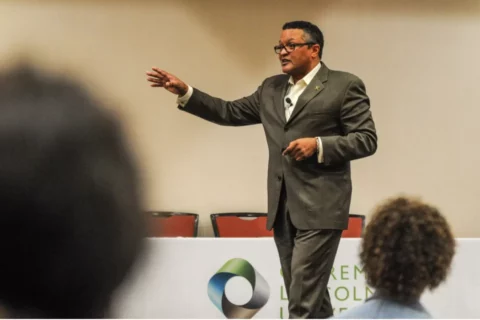D.C. residents, balancing their education expenses with the city’s high cost of living, said Friday they have been bracing for the U.S. Supreme Court’s decision to strike down President Joe Biden’s $400 billion plan to cancel or reduce federal student loan debts for millions of Americans.
While not shocked by the ruling, many still expressed frustration.
Nate Neimann, who is living in D.C. after getting his master’s degree at American University, said he has about $30,000 of student loan debt and that Biden’s plan would have helped him out “a fair bit” — although he was never expecting the Court to uphold it.
“I’m extremely disappointed but not particularly surprised,” Neimann said. “The makeup of the Supreme Court is just ideologically not very conducive to what Biden was trying to accomplish.”
In its 6-3 decision, with conservative justices in the majority, the high court ruled the Biden administration overstepped its authority with the plan.
Godson Akinnawo, a University of Maryland graduate, was also not surprised by the ruling.
“I didn’t think it was economically possible,” Akinnawo said.
The forgiveness program would have canceled $10,000 in student loan debt for those making less than $125,000 or households with less than $250,000 in income. Pell Grant recipients, who typically demonstrate more financial need, would have had an additional $10,000 in debt forgiven.
Twenty-six million people had applied for relief and 43 million would have been eligible, the administration said. The cost was estimated at $400 billion over 30 years.
Akinnawo, who has no student debt, said he had to “pay quite a bit out of pocket” as an international student but worked several jobs in college to cover the costs. He said he would have graduated sooner if the government had a student loan forgiveness plan in place, but that “all things happen for a reason.”
Still, he expressed concern for graduates who do have to pay off student loan debt: “It could definitely hinder one’s economic mobility.”
Student loan burrowers, led by the NAACP’s youth and college division, are marching to the White House after the Supreme Court struck down Biden’s debt forgiveness plan. “Cancel student debt, all of it,” they chant, down the length of Pennsylvania Ave. pic.twitter.com/LayGkj8skE
— Alejandro Alvarez (@aletweetsnews) June 30, 2023
Neimann, who was recently laid off from his job in the tech sector, said if some of his debt was forgiven, it would help him invest in a house and prepare to support a family — milestones that his financial situation has prevented him from doing so far.
“I’m about 30 years old now and that’s something my parents were able to do around this age,” Neimann said.
Akinnawo said he thought Biden’s relief plan strategy was “pretty interesting,” as it played into what he described as “recency bias” within the U.S. electorate that causes voters to ask what the president “has done for us lately.” If the proposal continues to be struck down, he said, Biden can simply say “‘Hey, you guys saw that I tried, it was out of my power.'”
Biden said the “hypocrisy of Republican elected officials” in their response to the ruling is “stunning.” He’s set to lay out a series of actions to provide continued debt relief Friday afternoon.
Neimann said he hopes the president “can pull something out” to support borrowers, but is skeptical.
“I’m not sure why there wasn’t just blanket student loan forgiveness, which, as far as I understand, would have avoided the need for this to go to the Supreme Court at all because it would have been done and dusted before the Supreme Court could even have a say,” Neimann said.
Local resident Mary O’Lone called the decision “tragic,” particularly considering the high court’s decision to overturn affirmative action in higher education admissions Thursday.
“The Supreme Court is a horror show, just turning back all sorts of programs that are there to uplift people and help them move forward,” said O’Lone, whose nieces and nephews have student debt.
According to O’Lone, “you need well-educated people to drive an economy,” and she worries that D.C. — where the Bureau of Economic Analysis estimated the 2021 average cost of living at $78,809 per year — will suffer as a result of the ruling.
“You kind of need to have some degree in order to get a job that pays enough to survive because, even 15 bucks an hour isn’t going to help you survive, certainly not here in the Washington, D.C. area,” O’Lone said.
However, to people considering taking out loans for graduate school, O’Lone had two words of advice: “Think twice.”
The Associated Press and WTOP’s Cheyenne Corin contributed to this report.








